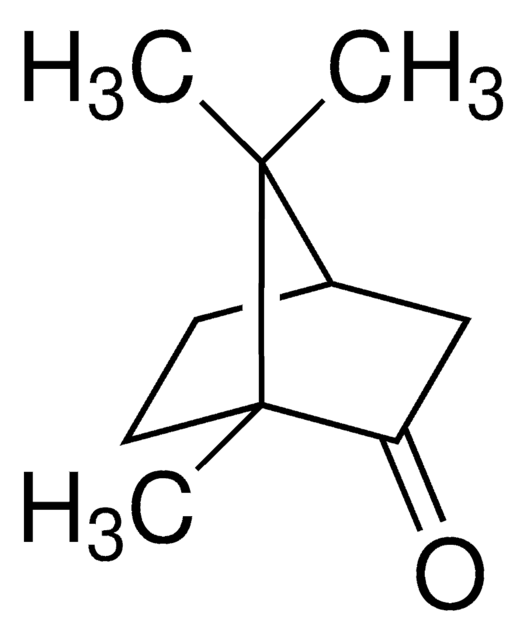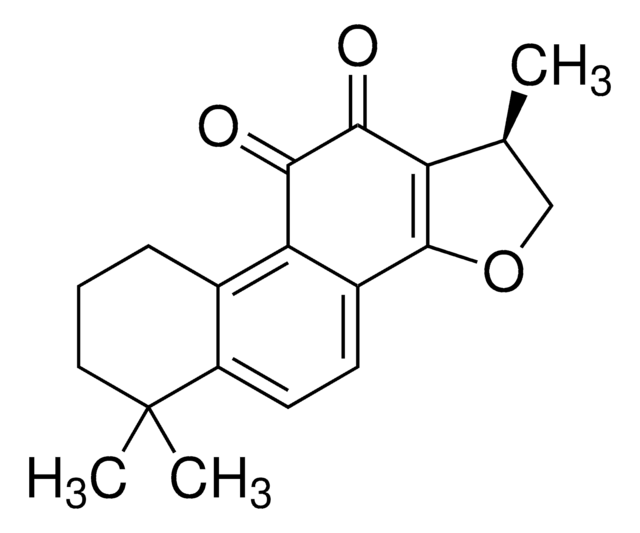T5330
Tanshinone I
≥98% (HPLC)
Synonym(s):
Tanshinon I, Tanshinone A, Tanshinquinone I
About This Item
Recommended Products
Quality Level
Assay
≥98% (HPLC)
form
powder
color
red
solubility
DMSO: 1 mg/mL
application(s)
metabolomics
vitamins, nutraceuticals, and natural products
storage temp.
2-8°C
SMILES string
Cc1coc2-c3ccc4c(C)cccc4c3C(=O)C(=O)c12
InChI
1S/C18H12O3/c1-9-4-3-5-12-11(9)6-7-13-15(12)17(20)16(19)14-10(2)8-21-18(13)14/h3-8H,1-2H3
InChI key
AIGAZQPHXLWMOJ-UHFFFAOYSA-N
Looking for similar products? Visit Product Comparison Guide
General description
Application
- to test its hematopoiesis effects on human leukemia cell lines and zebrafish xenograft models
- to study its anti-cancer effects on two breast cancer cell lines (MCF7 and MDA-MB-23)
- as a reference standard to quantify the bioactive component S. miltiorrhiza extract (SME) using high-performance liquid chromatography (HPLC)
Biochem/physiol Actions
Storage Class Code
11 - Combustible Solids
WGK
WGK 3
Flash Point(F)
Not applicable
Flash Point(C)
Not applicable
Certificates of Analysis (COA)
Search for Certificates of Analysis (COA) by entering the products Lot/Batch Number. Lot and Batch Numbers can be found on a product’s label following the words ‘Lot’ or ‘Batch’.
Already Own This Product?
Find documentation for the products that you have recently purchased in the Document Library.
Customers Also Viewed
Our team of scientists has experience in all areas of research including Life Science, Material Science, Chemical Synthesis, Chromatography, Analytical and many others.
Contact Technical Service







